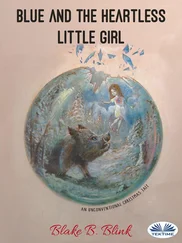Annie Randall White - The Blue and The Gray
Здесь есть возможность читать онлайн «Annie Randall White - The Blue and The Gray» — ознакомительный отрывок электронной книги совершенно бесплатно, а после прочтения отрывка купить полную версию. В некоторых случаях можно слушать аудио, скачать через торрент в формате fb2 и присутствует краткое содержание. Жанр: foreign_prose, История, foreign_edu, foreign_antique, на английском языке. Описание произведения, (предисловие) а так же отзывы посетителей доступны на портале библиотеки ЛибКат.
- Название:The Blue and The Gray
- Автор:
- Жанр:
- Год:неизвестен
- ISBN:нет данных
- Рейтинг книги:3 / 5. Голосов: 1
-
Избранное:Добавить в избранное
- Отзывы:
-
Ваша оценка:
- 60
- 1
- 2
- 3
- 4
- 5
The Blue and The Gray: краткое содержание, описание и аннотация
Предлагаем к чтению аннотацию, описание, краткое содержание или предисловие (зависит от того, что написал сам автор книги «The Blue and The Gray»). Если вы не нашли необходимую информацию о книге — напишите в комментариях, мы постараемся отыскать её.
The Blue and The Gray — читать онлайн ознакомительный отрывок
Ниже представлен текст книги, разбитый по страницам. Система сохранения места последней прочитанной страницы, позволяет с удобством читать онлайн бесплатно книгу «The Blue and The Gray», без необходимости каждый раз заново искать на чём Вы остановились. Поставьте закладку, и сможете в любой момент перейти на страницу, на которой закончили чтение.
Интервал:
Закладка:
"A messenger from General Shields, with dispatches for Colonel Hopkins. I must deliver them at once."
The sentinel called—"Sergeant of the guard—post number five—a message from headquarters!"
The words were passed along the line of guards, until it reached the sergeant, who came instantly.
He carried the papers to his colonel, who read them hastily, and signed each one, handing them back to the orderly, who rode swiftly away.
Ralph was by this time outside his tent, unmindful of the sleet which tore his flesh like sharp-pointed arrows. He longed to know what those dispatches signified, but his curiosity had to remain unsatisfied, and he went back to his tent to try to sleep, as well as he could, for the biting wind that forced its way into every crevice.
He seated himself on the side of his bed, and tried to think. He wondered when General McClellan was going to take Richmond. The cry "All Quiet on the Potomac" was heard continually, and weary men and weeping women all over the land were longing for the dawn of peace which should bring back to them fathers, husbands and sons. But ah, that peace was far distant. The boy reasoned that he had no right to criticise the men who held trusted positions in the army. But surely the boys in camp and field were doing all they could, under orders, to hasten the end of these troublous times. Would the conflict ever cease?
Perplexed and worn out in trying to solve the problem agitating so many of the most patriotic and the most far-seeing, all over the land, Ralph at last fell asleep, to be roused by the reveille. He sprang up, sure that he must be dreaming, for he had just been sleeping but a moment—a mere "cat nap," and this couldn't be a summons to leave his comfortable bed. He had neither time nor right to object, however; his sole duty was to obey orders, and he hastened to dress. Outside, the soldiers were hurrying about, most of those who were called on glad of any break in the monotony of their first winter in camp.
"Breakfast at two, march at half-past," was the captain's peremptory order.
"What an unearthly hour," was Ralph's comment. "Where, are we bound? And why march at night?"
"Can't say," a comrade ventured, "unless it's so we won't have to march by day!"
They were not long in suspense.
A portion of their regiment was ordered to assist a force of Ohio and Indiana men under Colonel Dunning, in routing a body of Confederates who were posted near Romney, Va., at a point called Blue Gap.
The wind had died away, the stars were out, and the moon shone brilliantly. The cutting sleet had turned to snow, and the soft carpet lay white and pure, muffling the sound of their footsteps. It was a weird sight—that mass of men tramping along with steady steps, while their shadows falling on the ground danced and flickered in the moonbeams with startling vividness.
Blue Gap was a natural opening between hills, and was well defended by howitzers and rifle pits. As they approached the Gap, Ralph's keen eye detected a dozen men piling up limbs, straw, and other inflammable material, against the bridge that spanned a stream running through the Gap.
"Captain," he said, "some of those fellows have left the lines, and are fixing things nice to burn that bridge."
"We'll block that game, instanter. We need that bridge more than they do."
A dash was made for the bridge, led by the captain, who opened fire upon them, and thus ended that attempt. On the hills the entrenchments were held manfully, but the Confederates had scarce time to pour forth their fire, before the two Ohio regiments dashed upon them, and captured two pieces of artillery. The surprise was so complete and the attack so overwhelming, that defense was vain.
The hills were swarming with Federals, fighting hand to hand, and forcing their opponents back. The houses on the other shore were filled with sharpshooters, whose constant firing harassed the Federals, and brought down a soldier at nearly every shot.
A score of men sprang into a large boat lying at the bank, and with a storm of bullets hissing and rattling about them, they crossed to the shore where the sharpshooters were hidden. Death menaced them, but with a huzza that would have put life into a stone, they rowed fast, and sprang out of the boat. Dashing up the hill, to the houses which the enemy had used for vantage ground, they found them vacated.
"They didn't wait to make our acquaintance," Ralph said.
"No, but those sharpshooters introduced themselves to us in fine style. Why, a man went down at nearly every shot."
Bill said not a word, but leaned heavily over the side of the boat. No one paid him attention, for their hearts were filled with a longing for revenge.
"Boys, we have missed the rebs ensconced in these houses, but we can prevent their using them again. We will burn them to the ground, and take good care that not a timber stands, after we have done with them. They have picked off some of our best men, and we won't leave a roof to shelter them."
A dozen pairs of willing hands were at work in an instant gathering wood and brush, which they piled around the dwellings. With faces grimy and soiled, these resolute men touched the pile with a match, while they stood ready to shoot the first man who dared to show himself to protest, and soon the flames leaped upward, crackling, sputtering and curling round doors no and windows, licking up every object within reach, till naught but the charred and blackened timbers stood to mark the spot where the sharpshooters had dealt their deadly work.
The skirmish was brief. It was an easy victory, and no loss had been sustained by the Federals, save those who were shot in the boats. But the Confederate loss was greater. Forty soldiers were lying dead in the grass and weeds, and as many more were carried back to camp, prisoners.
Even while the houses were being consumed, Ralph went back to assist those who had received the bullets of the sharpshooters. Some had fallen overboard, and sunk in the stream. Others were lying as they had fallen, their cold hands still grasping their weapons, which they would never use again. One poor fellow was kneeling in the bottom of the boat, his finger on the trigger of his musket, and his staring eyes fixed on the shore. Ralph shuddered. Could he ever become inured to these dreadful sights?
Bill Elliott was leaning over the side of the boat, in a half-stupor. The wound in his head had opened afresh, and the red stream was running down his face, staining its ghastly whiteness crimson. His arm hung useless by his side, shattered by a bullet. Opening his eyes at the sound of Ralph's voice, he whispered faintly: "I thought you'd come arter me. They've fixed me this time, sure," and he relapsed into unconsciousness.
A litter was soon hurried together, and Old Bill was placed in hospital.
CHAPTER IX. FAIR OAKS
THE Johnnies are busy these times, aren't they?' "And so are we, chasing them up. I don't see that we are any nearer Richmond than we were a month or so ago."
"Nor we won't be," broke in another man, "if General McClellan repeats his Yorktown tactics. Perhaps, by the time we get to Richmond, we'll find some 'Quaker guns' there."
"It must have been kind of disheartening to the boys after lying 'round a place a month to have the rebs move out just as they were getting ready to go in, and find they had left a lot of wooden guns behind."
All the next day the soldiers were working on the redoubts, and wholly unaware of the surprise in store for them. May 31st dawned, and while they were still fortifying their position, a tremor ran through the line. "The Confederates are upon us!" was the cry, and as they tossed aside the shovels, the Confederates charged upon them with their well-known "yell" that so often echoed and re-echoed on the battle-field.
Читать дальшеИнтервал:
Закладка:
Похожие книги на «The Blue and The Gray»
Представляем Вашему вниманию похожие книги на «The Blue and The Gray» списком для выбора. Мы отобрали схожую по названию и смыслу литературу в надежде предоставить читателям больше вариантов отыскать новые, интересные, ещё непрочитанные произведения.
Обсуждение, отзывы о книге «The Blue and The Gray» и просто собственные мнения читателей. Оставьте ваши комментарии, напишите, что Вы думаете о произведении, его смысле или главных героях. Укажите что конкретно понравилось, а что нет, и почему Вы так считаете.











